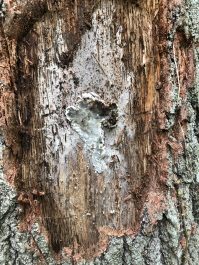Mississauga Taking Action Against Invasive Species
Environment | February 28, 2022
The City of Mississauga is recognizing Invasive Species Awareness Week from February 28 to March 4, 2022. The week is about creating awareness and educating residents about invasive species and early detection to protect our urban tree canopy and natural spaces.
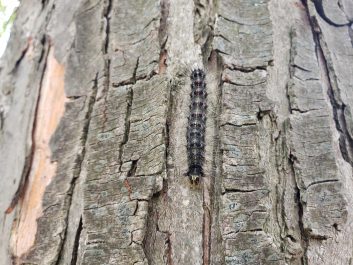
Invasive pest: LDD caterpillar
Invasive species online webinar
Invasive species are plants, animals or micro-organisms that are not native to Mississauga and cause harm to our natural environment with their aggressive colonisation of new spaces. Invasive species threaten our parks, forests, woodlots, green spaces and wildlife habitats.
The City is hosting an online webinar on Wednesday, March 2 at 6 p.m. Interested participants will learn more about invasive species management in Mississauga. If you are interested in participating, make sure you register in advance of the session.
Invasive species in Mississauga
Whether its Oak Wilt affecting our oak trees, Garlic Mustard crowding native plants, the toxic Giant Hogweed growing along ravines, Lymantria dispar dispar (LDD) affecting our hardwoods or the Emerald Ash Borer (EAB) destroying our ash trees – invasive species of all kinds are a major problem in Mississauga. These plants and pests put pressure on our environment because they often have no natural predators.
Last year, the City launched its first-ever Invasive Species Management Plan and Implementation Strategy to respond to the threat of invasive species. The plan and strategy provides a phased, city-wide approach to managing invasive species like LDD, Emerald Ash Borer, Garlic Mustard, Wild Parsnip, Dog-strangling Vine and Giant Hogweed. It also helps ensure that these invasive species are no longer a threat to our community and budget.
The City has seen success with its mitigation efforts including eliminating the invasive Asian Long-horned Beetle and managing the EAB population in Mississauga. In 2013, the City allocated $54.2 million over 12 years to replace Ash trees and remove or treat those affected by EAB.
2022 Aerial Spray
This spring, an aerial spray is planned to manage the LDD caterpillar population in affected neighbourhoods. This invasive pest affects trees by eating away at leaves, making them more susceptible to diseases and extreme weather events.
The aerial spray program will cover City-owned and private property across Mississauga using a Bacillus thuringiensis subspecies kurstaki (BTK) spray treatment widely used in forestry, agriculture and urban settings. According to Health Canada, there are no health or significant environmental concerns. BTK is only toxic in the caterpillar stage of the LDD life cycle and does not affect adult moths or butterflies, or other insects and wildlife.
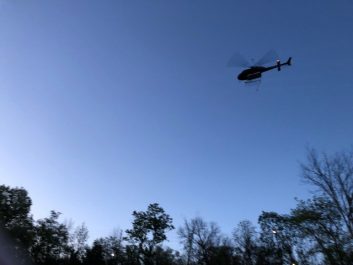
BTK sprayed over treetops during the 2018 aerial spray
What can you do?
Residents can protect trees on their property with additional measures like removing egg masses before the end of April. Egg masses can be found on trees, windowsills, under eavestroughs, patio furniture, fences or mailboxes. Watch the video on how to remove LDD egg masses.
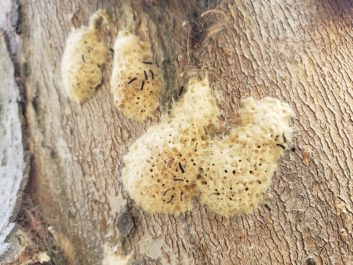
Invasive pest: LDD egg masses on a Silver Maple tree
Use the interactive map to check for sightings of LDD or report sightings of LDD in Mississauga by using the online reporting form. Learn more about ways to help and what the City is doing to manage invasive plants and pests in Mississauga, visit mississauga.ca/services-and-programs/forestry-and-environment/invasive-species/.
Photos:
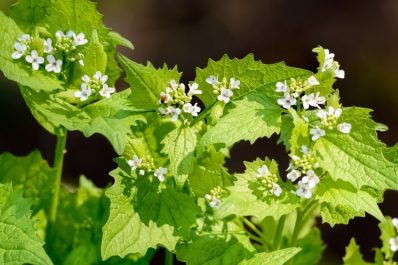
Invasive plant: Garlic Mustard
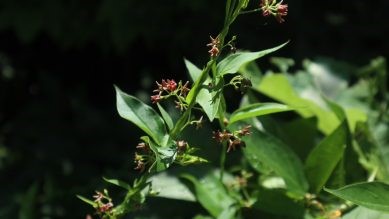
Invasive plant: Dog-strangling Vine
Tags
Media contact
City of Mississauga Media Relations
media@mississauga.ca
905-615-3200, ext. 5232
TTY: 905-896-5151
